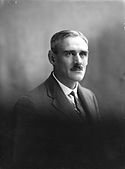New Zealand general election, 1928
|
|
|||||||||||||||||||||||||||||||||||||||||||||||||||||||||||||||||||||||||||||
|---|---|---|---|---|---|---|---|---|---|---|---|---|---|---|---|---|---|---|---|---|---|---|---|---|---|---|---|---|---|---|---|---|---|---|---|---|---|---|---|---|---|---|---|---|---|---|---|---|---|---|---|---|---|---|---|---|---|---|---|---|---|---|---|---|---|---|---|---|---|---|---|---|---|---|---|---|---|
|
|||||||||||||||||||||||||||||||||||||||||||||||||||||||||||||||||||||||||||||
|
|
|||||||||||||||||||||||||||||||||||||||||||||||||||||||||||||||||||||||||||||
|
All 80 seats in the House of Representatives 41 seats were needed for a majority |
|||||||||||||||||||||||||||||||||||||||||||||||||||||||||||||||||||||||||||||
| Turnout | 88.01% | ||||||||||||||||||||||||||||||||||||||||||||||||||||||||||||||||||||||||||||
|
|||||||||||||||||||||||||||||||||||||||||||||||||||||||||||||||||||||||||||||
|
|||||||||||||||||||||||||||||||||||||||||||||||||||||||||||||||||||||||||||||
The New Zealand general election of 1928 was held on 13 and 14 November in the Māori and European electorates, respectively, to elect 80 MPs to the 23rd session of the New Zealand Parliament.
1928 was the year postal voting was introduced for certain specified groups (e.g. invalids) who could not get to a polling booth on election day.
The 1928 election was held on Tuesday, 13 November in the Māori electorates, and on Wednesday, 14 November in the general electorates to elect a total of 80 MPs to the 23rd session of Parliament. A total of 844,633 electors were registered on the European roll, of which 743,691 (88.05%) turned out to vote. All 80 electorates were contested. 47 and 29 electorates were in the North Island and South Island, respectively, plus the 4 Māori electorates.
In 1927, a faction of the decaying Liberal Party formed a new organisation, which was eventually named the United Party. In 1928, to the considerable surprise of most observers and many members of the party itself, United won a considerable victory, taking Auckland East and Grey Lynn from Labour. The United Government came to power with Labour support. Labour, forming the official opposition since 1926, were thus replaced by Reform. Six Independents were elected (most with allegiances to the main parties. Four of these backed United, one supported Reform and one favoured neither.
The Bay of Islands electorate went to Harold Rushworth of the Country Party after a recount of the votes, but the election was declared void January 1929. Rushworth won the resulting by-election. This marked the Country Party's first entry into Parliament, where it would retain a presence until 1938.
...
Wikipedia




